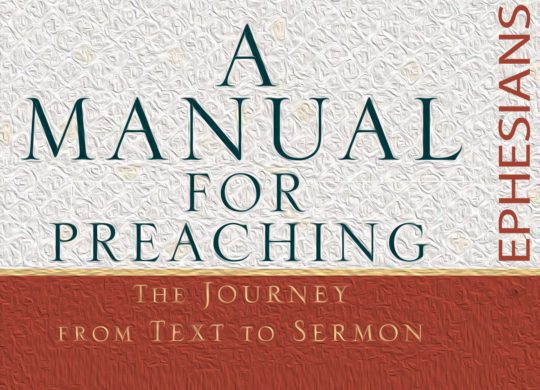Ephesians 4:17–32

The chronological sequence of events in Ephesians 4:17–18 appears to be written in reverse. Reordering the series, the progression looks like this: hardness of heart (4:18d) → ignorance (4:18c) → exclusion from the life of God (4:18c) → darkness in understanding (4:18a) → futility of mind (4:17d). Moral apathy results—callousness: insensitivity to moral issues, incapacity for shame, a sort of “conscience-less-ness” (4:19). The ultimate result is the unbeliever’s lifestyle (“walk,” 4:17), given over to all manner of uncontrolled licentious behavior—manifestation of every kind of sexual “impurity” with greed (4:19). “With greed” indicates that there was a constant lust for more of the indecent activity.
The course of immorality.
Both “you” and “this way” are emphatic in 4:20: literally, “But you—not this way did you learn Christ.” With that, a stark contrast is created between the walk of unbelievers (4:17–19) and the walk expected of believers (4:20–24). Those truths in Jesus that are learned, heard, and taught in him, deal with the totality of living the Christian life, after the fashion of the perfect Man, Jesus Christ. This is spelled out broadly in three parts (4:22–24): “you have put off,” “you are being renewed,” and “you have put on.” The middle element, a present passive infinitive (unlike the bracketing aorist infinitives), designates an ongoing process happening inwardly and showing outwardly: the “new person.” This new person has been “created in accordance with God[’s likeness] in true righteousness and holiness”—this is what Christians are to look like. Having put on the new person, their model for life is the righteousness and holiness of God in Christ, practical consequences of which are detailed in the rest of the letter.
The course of immorality, and the course of morality—Christlikeness.
There are five exhortations in this section, 4:25–32 (4:25, 26–27, 28, 29, 30–32), each with a negative and a positive command, and a motivation for the latter. They deal with lying, anger, theft, unwholesome speech, and other impure kinds of utterances, respectively. After the exalted concepts of “learning” and “hearing” Christ, being taught in him, and being renewed in the likeness of God, Paul now lands back on earth, to address the mundane matters of daily Christian life. All of these facets of behavior concern the maintenance of “the unity of the Spirit in the bond of peace” (4:3). Ultimately, of course, all of this is part of God’s grand and glorious plan to consummate all things in Christ.
The course of immorality, and the course of morality—Christlikeness—and its manifestations.
In contrast are the virtues of 4:32, promoting a united community. This list details the manifestations of a godly character—the lifestyle of the new person exhibiting God’s likeness (4:24). God is himself “kind” (Pss 24:8; 33:9; 68:17; 85:5; 99:5; 106:1; 108:21; 118:68; 136:1; 145:9; Luke 6:35; Rom 2:4; 1 Pet 2:3), “compassionate” (using the cognate verb: Matt 9:36; 14:14; 18:27; Luke 1:78; 7:13; 10:33; 15:20), “engracing/forgiving” (Rom 8:32; 1 Cor 2:12; Col 2:13; and using a related verb: Luke 1:28; Eph 1:6). The ground of all Christian behavior is the character of God himself, as Ephesians 4:24 makes abundantly clear.
Those sealed by the Spirit (4:30) are those with the imprint of divine character upon them. This is therefore a mandate to live lives worthy of that God and his sealing, especially, in this context, by eschewing activities that militate against the Spirit-driven unity of the body.
The course of immorality, and the course of morality—Christlikeness—and its manifestations, unifying community in the likeness of God.
And for another version:
Believers, no longer living licentiously, are being divinely renewed into the likeness of God that is manifest as they maintain unity and engage in activities that build up one another.











 Abe Kuruvilla is the Carl E. Bates Professor of Christian Preaching at The Southern Baptist Theological Seminary (Louisville, KY), and a dermatologist in private practice. His passion is to explore, explain, and exemplify preaching.
Abe Kuruvilla is the Carl E. Bates Professor of Christian Preaching at The Southern Baptist Theological Seminary (Louisville, KY), and a dermatologist in private practice. His passion is to explore, explain, and exemplify preaching.